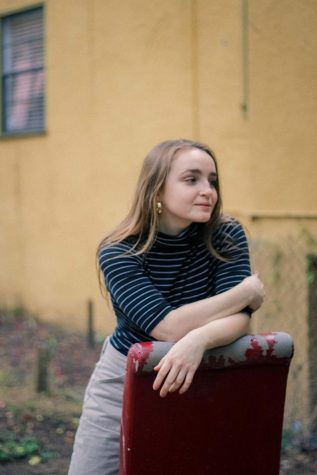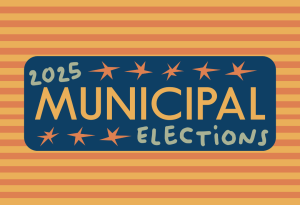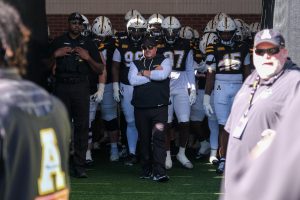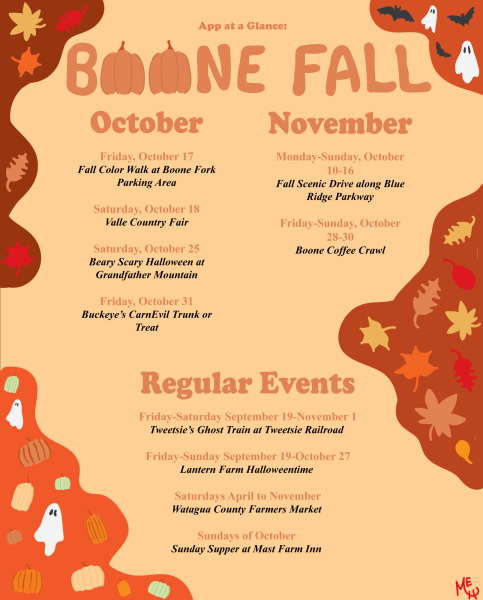Future of SDAP uncertain as grant soon expires
December 6, 2019
The Scholars with Diverse Abilities Program is an inclusive two-year educational program housed in the Reich College of Education and is offered to students with intellectual disabilities. A grant that funded much of the program is expiring, and its future currently remains uncertain.
Along with work experience and social support, graduates of the program receive a Collegiate Achievement award. SDAP is an integrative experience and allows students to sit-in on classes within the university college.
Grant money from the Department of Education, and additional funding from Western Carolina University, covered the first five years of the program, which began in 2011. In 2015, Anna Ward, current director of the program, wrote a grant for the next round of funding with help from the special education program.
“I’d written grants that were two or three pages, but this one was 48,” Ward said. “We got it.”
Currently, App State provides 25% of the funds required to provide support, space and education for the 10 SDAP students. In a meeting with Provost Darrell Kruger, Ward confirmed that the university will continue to supply this portion of the funding.
“I genuinely believe that the majority of people see this as a good thing and want it to continue,” Ward said. “But when it comes to allocating resources and money, everyone is really scrambling for the same budget.”
The money supply Ward applied for runs out this school year, leaving the future of SDAP up in the air. The SDAP office will soon see if it is eligible to reapply for another five years of funding through the Department of Education in April.
The program came about in the middle of a national push to create more educational opportunities for people with intellectual disabilities, Ward said. Its creation occurred partially in response to the 2008 Higher Education Opportunity Act, which prompted the U.S. Department of Education to fund programs similar to SDAP at universities across the country.
Including SDAP, three programs exist within North Carolina’s higher education institutions to create inclusive educational spaces for people with mental disabilities. The other programs include the Supporting Transition and Education through Planning and Partnerships program at East Carolina University and a Comprehensive Transition Program at UNCG.
Robert Neeb, a music therapy student and graduate assistant with the program, said the inclusive environment SDAP provides benefits more than just its students.
“When I was going to high school, you’d see students with disabilities working in the special education classroom, which is fine, but when you have an inclusive environment you begin to see how well it works,” Neeb said. “And you wonder, why haven’t we been doing this all along?”
In his work with SDAP, Neeb has grown close with student Clay Medlock, a second-year SDAP student. Although students in the program frequently study and work alone, they are offered support through class modifications, specialized classes, graduate assistants, volunteer supports and job opportunities.
“I love my class experiences; (volunteer) supports are awesome; grad assistants are amazing,” Medlock said. “(Neeb) is leaving in December because he’s graduated, and I’m very devastated (because of) that.”
Medlock’s sister and brother-in-law, who graduated from the university, inspired him to come to App State. He often toured and attended games prior to applying.
Ward said about 25 families toured the university this year with interest in the SDAP program, the highest demonstration of interest thus far. Ward said she suspects the amount of uncertainty surrounding the funding will force SDAP to cap the number of new students at four. This would place the program’s enrollment at around eight next year.
“It’s hard to narrow it down because it feels like a decision that’s being made that would really support somebody into making huge changes in their lives — because that is what we see,” Ward said.
One student who graduated from the program, Mieszko Kwiatkowski, created his own micro business called Mieszko Art where he sells his artwork. Another student, Tyler Shore, illustrated and published his own short story.
Micah Gray, who joined SDAP in August, works at the SRC and joined the gospel choir with another student in the program. He calls himself a mix between an alto and bass singer.
“I was really nervous, I didn’t know what it was going to be like,” Gray said. “I met a whole lot of new people — friends.”












